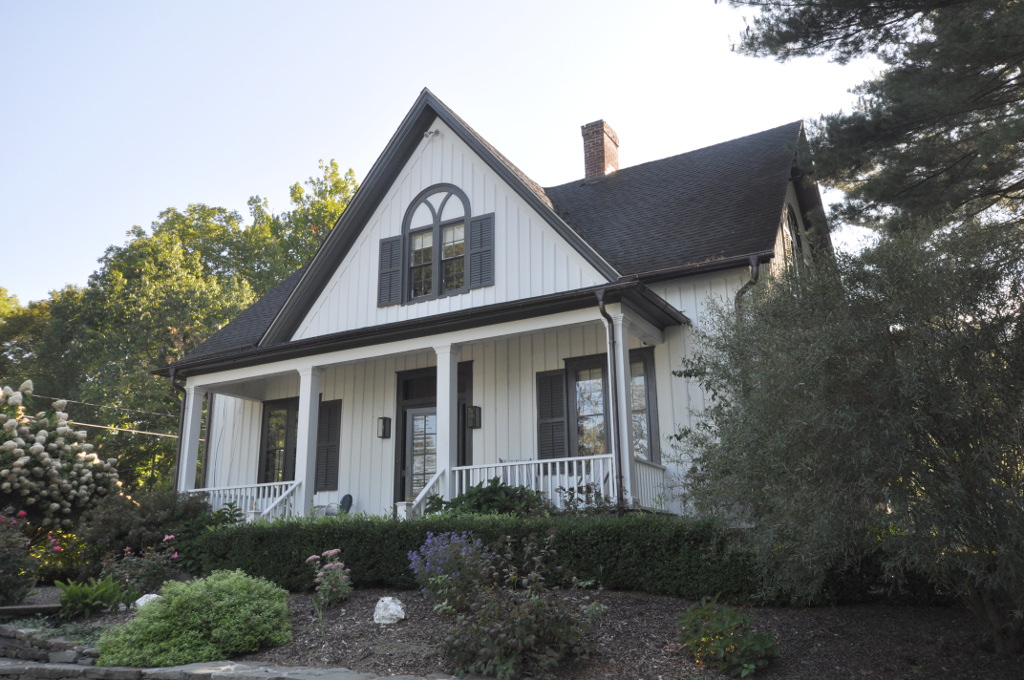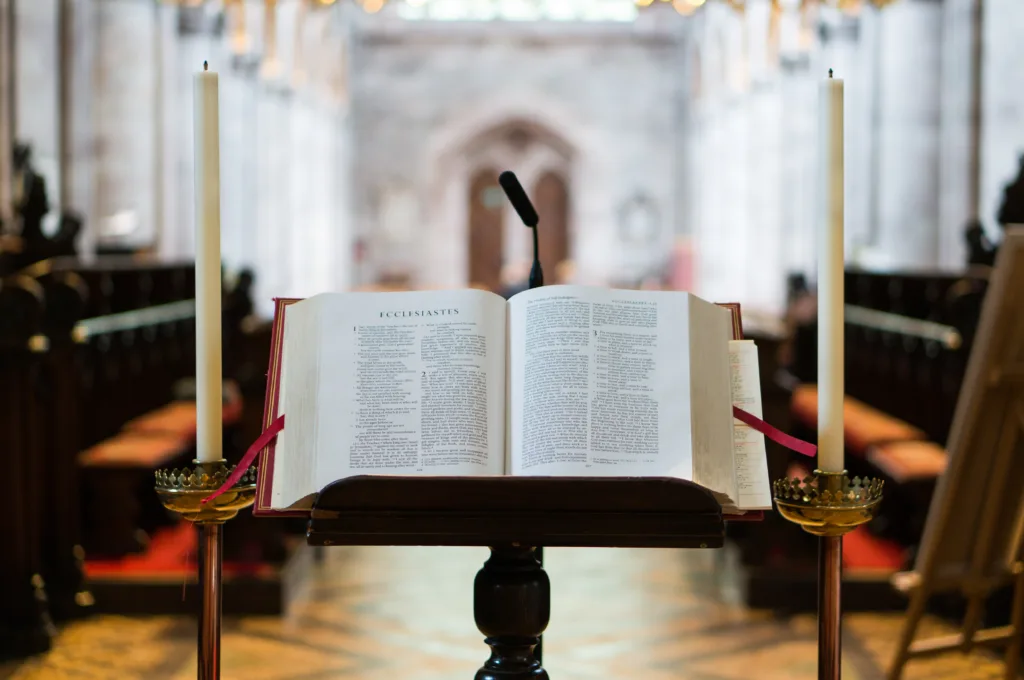Pastors play a vital role in our society, providing spiritual guidance to their congregations and serving as a source of comfort and support during challenging times. However, many people may wonder whether pastors pay taxes on their homes, given that they often receive a housing allowance as part of their compensation.
The short answer is yes, pastors are required to pay taxes on their homes, but there are some important nuances to understand. Let’s explore this topic in more detail.
First, it’s important to understand what a housing allowance is and how it works. A housing allowance is a payment made by a church or religious organization to a minister or pastor to cover the cost of housing. This allowance is typically included as part of the pastor’s overall compensation package, and it can be used to pay for rent, mortgage payments, utilities, and other housing-related expenses.
The key thing to understand about a housing allowance is that it is considered to be a form of income for tax purposes. However, there are some special tax rules that apply to housing allowances for pastors.
Under current U.S. tax law, pastors are allowed to exclude their housing allowance from their gross income for federal income tax purposes. This means that they do not have to pay federal income tax on the portion of their compensation that is designated as a housing allowance.
However, pastors are still required to pay self-employment tax on their housing allowance. This tax is designed to cover Social Security and Medicare taxes that would normally be paid by an employer if the pastor was not self-employed.
So, while pastors do not have to pay federal income tax on their housing allowance, they do have to pay self-employment tax. This can make a significant difference in their overall tax liability, especially if they receive a large housing allowance.
It’s also worth noting that pastors who live in a parsonage, which is a home provided by the church, may not need to pay taxes on the value of the housing. In this case, the church would designate a portion of the pastor’s compensation as a parsonage allowance, which would be excluded from income for tax purposes.
In addition to these tax rules, pastors may also be eligible to use money from a 403(b) retirement account to pay for housing expenses without incurring any tax liability. However, there are some restrictions and limitations on this option, so it’s important to consult with a tax professional or financial advisor before making any decisions.
Pastors are required to pay taxes on their homes, but the rules and regulations aound housing allowances can be complex. It’s important for pastors and their churches to work with a qualified tax professional to ensure that they are complying with all applicable tax laws and regulations. By doing so, they can focus on their important work of serving their congregations and making a positive impact in their communities.
Taxability of Pastor Housing
No, pastor housing is not fully taxable. A minister’s housing allowance, also known as a parsonage allowance or rental allowance, is excluded from gross income for income tax purposes. This means that a portion of a pastor’s compensation can be designated as a housing allowance and excluded from their taxable income. However, it is important to note that this exclusion only applies to income tax and not self-employment tax. Additionally, if a pastor receives free housing as part of their compensation, the fair rental vaue of the housing must be included in their taxable income. Overall, while pastor housing is not fully taxable, it is important for pastors to understand the rules and regulations surrounding their housing allowance and any other forms of compensation.

Tax Exemptions for Pastors
Pastors, also known as members of the clergy, are exempt from paying social security and Medicare taxes on their income earned while performing services in the exercise of their ministry. This exemption is due to the fact that pastors are considered self-employed for tax purposes, and self-employed individuals are responsible for paying their own social security and Medicare taxes. However, pastors are sill required to pay income tax on their earnings, and they may be subject to other taxes depending on their specific circumstances. It’s important for pastors to consult with a tax professional or the IRS to ensure they are meeting all of their tax obligations.
Do Pastors Receive Housing Benefits?
The answer to this question depends on the specific circumstances of each pastor. In some cases, a church may provide a parsonage or housing allowance as part of the pastor’s compensation package. In these situations, the pastor may not have to pay for their home directly but may still be responsible for certan expenses, such as utilities or repairs.
Alternatively, some pastors may choose to purchase or rent their own home using their salary or other sources of income. In these cases, the pastor is responsible for all housing costs and expenses.
It’s worth noting that there are some tax benefits available to pastors who live in a parsonage or receive a housing allowance. For example, a portion of the pastor’s income designated as a housing allowance may be excluded from taxable income. Additionally, pastors may be able to use funds from a 403(B) retirement account to pay for housing expenses without incurring any tax liability.
Overall, whether or not pastors pay for their homes depends on a variety of factors, including their compensation package, personal preferences, and financial situation.
Amount of Housing Allowance for Pastors
The amount of housing allowance that a pastor can claim depends on various factors, including the church’s income and the pastor’s full-time status. As per the current guidelines, the median housing allowance for full-time solo pastors is $18,000 per year for churches earning $250,000 or less annually. For churches earning between $251,000 to $500,000 per year, the median housing allowance is $25,000. However, it is important to note that the exact amount of housing allowance that a pastor can claim may vary depending on individual circumstances and othr factors. It is always advisable for pastors to consult a tax professional or an accountant to determine the specific amount of housing allowance they can claim.
Do Preachers Have to Pay Taxes?
Preachers, or ministers, are ofen considered to be exempt from paying taxes because they are treated as a hybrid of a self-employed worker and a traditional employee for tax purposes. This is due to the fact that they receive compensation from the church or religious organization they work for, but they are also responsible for paying their own self-employment taxes, such as Social Security and Medicare taxes.
In addition, most churches and religious organizations are exempt from paying taxes as they are classified as tax-exempt entities. This means that the church or organization does not have to withhold income tax from the minister’s wages, leaving the responsibility for paying taxes solely on the minister.
It is important to note that not all ministers are exempt from paying taxes. There are certain conditions and qualifications that must be met in order for a minister to be considered tax-exempt. These include performing duties that are considered to be part of their religious organization’s regular activities, being ordained, licensed, or commissioned by the religious organization, and receiving compensation for their services.
In summary, preachers or ministers may not pay taxes because they are considered a hybrid of a self-employed worker and a traditional employee, and because the church or religious organization they work for is generally tax-exempt. However, not all ministers are exempt from paying taxes and certain conditions must be met in order to qualify for tax exemption.

Can the Church Cover Pastor’s Rent?
Yes, the church can pay the pastor’s rent. However, it is important to note that the decision to do so may depend on the specific circumstances of the church and the pastor.
In some cases, churches may provide their pastor with a parsonage, which is a house or apartment owned by the church and provided to the pastor as part of their compensation package. In this situation, the pastor would not need to pay rent as it would already be covered by the church.
However, if the church does not provide a parsonage, it may be possible for the church to pay the pastor’s rent as part of their compensation package. This would depend on the budget and financial resources of the church, as well as the agreement reached between the pastor and the church regarding their compensation.
It’s important to note that there may be tax implications to consder when paying a pastor’s rent. The church should consult with a tax professional to ensure that they are following all applicable laws and regulations.
In summary, while the church can pay the pastor’s rent, the decision to do so will depend on the specific circumstances and resources of the church, as well as any applicable tax laws and regulations.
Understanding How Housing Allowance Works for Pastors
A housing allowance is a special tax benefit available to pastors or ministers who own or rent their homes. It allows them to exclude a crtain portion of their income from taxes, specifically the portion that goes towards housing expenses. To qualify, the pastor must be ordained, licensed, or commissioned by a religious organization and perform ministerial duties as their primary occupation.
The housing allowance is not considered taxable income for federal income tax purposes, which means that pastors do not have to pay income tax on this portion of their income. However, it is important to note that the housing allowance is still subject to self-employment taxes, which include Social Security and Medicare taxes.
The amount of the housing allowance is determined by the church or religious organization and must be designated in advance. The pastor must use the funds only for housing expenses, such as mortgage or rent payments, utilities, repairs, and maintenance. Any unused portion of the housing allowance may be carried over to future years, but it cannot be used for other purposes.
In summary, a housing allowance is a valuable tax benefit that helps pastors offset the cost of housing expenses. It is important for pastors to understand the guidelines and limitations of this benefit to ensure that they are using it correctly and maximizing its benefits.
How Pastors Receive Payment
A pastor, or minister, typically receives a salary from the church they serve. This salary is agreed upon in a written contract between the pastor and the church leadership, and is reviewed and adjusted periodically. The amount of the salary can vary widely depending on the size of the church and the location of the church. For example, mega-churches with large congregations may pay their ministers very well, whle pastors at smaller rural churches with fewer members may not receive any pay for their services. In addition to salary, some pastors may also receive additional benefits such as housing, health insurance, and retirement plans. Overall, the pay structure for pastors varies depending on the specific church and its resources.
Are Pastors Self-Employed?
Yes, pastors are considered self-employed for federal income tax purposes. This means that they are responsible for paying both the employee and employer portion of Social Security and Medicare taxes, also known as self-employment taxes. Additionally, pastors may be eligible for certain tax deductions related to their work, such as a housing allowance or expenses related to their ministry. It is important to note, however, that the exact tax rules and regulations can vary depending on the specific circumstances of the pastor and their ministry.

What Is A House For A Pastor Called?
A house provided by a church for its pastor is called a parsonage. It is a residence provided to the pastor or minister by the church, usually as a part of their compensation package. The parsonage is typically located near the church, and it serves as the pastor’s home and a place for them to carry out their religious duties. The parsonage may vary in size and style depending on the church’s budget and the size of the congregation. It is not uncommon for the church to own the parsonage and provide the necessary maintenance and repairs. The parsonage is an essential aspect of a pastor’s life as it povides them with a home and a sense of stability while they carry out their religious duties.
Benefits of Being a Pastor
Pastors typically receive a variety of benefits beyond just their cash salary and housing allowance. These benefits may include a retirement savings plan, life insurance, disability insurance, and health insurance. In some cases, a paid sabbatical may also be included as part of the benefits package.
Retirement savings plans are a common benefit offered to pastors, which can help them save for their future and ensure they have financial security in their later years. Life insurance is another important benefit, as it provides financial protection for the pastor’s family in the event of their death. Disability insurance can help cover lost income if the pastor becomes unable to work due to injury or illness, while health insurance can help cover medical expenses.
In addition to these benefits, some churches may also offer a paid sabbatical to their pastors. This is typically a period of several months (often betwen three and six) where the pastor is given time off to rest, recharge, and pursue personal or professional development. Sabbaticals can be a valuable benefit for pastors, as they allow them to take a break from the demands of ministry and return to their work refreshed and re-energized.
Overall, the benefits package for pastors can vary depending on the church and the specific role of the pastor. However, most pastors can expect to receive a combination of cash compensation and benefits that provide financial security, protection, and opportunities for personal and professional growth.
Income of Pastors
Pastor income is typically referred to as a “salary” or “compensation.” This refers to the amount of money paid to a pastor by their church or religious organization for their services as a spiritual leader. In addition to a base salary, pastors may also receive benefits such as health insurance, retirement plans, and housing allowances. It’s important to note that pastors are considered self-employed for tax purposes, whch means they are responsible for paying their own self-employment taxes on their income. Overall, a pastor’s income can vary greatly depending on factors such as the size of their congregation, the location of their church, and their level of experience and qualifications.
Can Pastors Receive Car Allowances?
Yes, a pastor can have a car allowance. The church can pay a pre-determined dollar amount on a monthly basis in the form of an auto allowance. However, it is important to note that an auto allowance is considered taxable income and it should appear as part of wages on either W-2 Forms. This means that the pastor will need to pay taxes on the car allowance as they wuld for any other form of income. Additionally, the church may have specific policies and guidelines regarding car allowances, so it is important for the pastor to consult with the church leadership or accounting department before setting up a car allowance.

What Percentage of Church Income Should Be Allocated to the Pastor?
When it comes to determining the percentage of church income that should be allocated towards a pastor’s compensation, there is no one-size-fits-all answer. However, many churches tend to allocate anywhere from 30-60% of their total budget towards compensation for their lead pastor or clergy members.
It’s important to note that the exact percentage may vary depending on sveral factors such as the size of the congregation, the location of the church, and the pastor’s experience and qualifications. Additionally, it’s crucial for churches to consider other expenses that may arise such as building maintenance, administrative costs, and ministry programs.
Ultimately, the decision of how much of the church’s income should go towards a pastor’s compensation should be made through careful consideration and prayerful discernment by the church leadership and members. The goal should be to provide fair and just compensation that reflects the value and importance of the pastor’s role in the church community, while also ensuring the financial stability and sustainability of the church as a whole.
How Much Should a Pastor Withhold for Taxes?
As a pastor, you are responsible for paying both federal income tax and self-employment tax (also known as SECA tax) on your earnings. SECA tax is the equivalent of Social Security and Medicare taxes that are withheld from employees’ paychecks, but since pastors are considered self-employed, they must pay both the employer and employee portions themselves.
To determine how much you should withhold for taxes, Auxilio recommends that you include an additional withholding of 15.3% of your salary (including any SECA allowance from the church) + housing allowance on your W-4 form to cover SECA taxes owed. This amount may vary depending on your individual circumstances, such as your income level, filing status, and deductions. It’s always a good idea to consult with a tax professional to ensure you are accurately calculating your tax withholding and making any necessary estimated tax payments throughut the year. By properly withholding and paying your taxes, you can avoid penalties and ensure that you are meeting your tax obligations as a pastor.
Conclusion
In conclusion, pastors play an important role in providing spiritual guidance and support to their congregations. They receive a unique tax treatment, including the option for a housing allowance that is excludable from gross income for income tax purposes. However, it is important to note that this exclusion does not apply to self-employment tax purposes. Additionally, pastors may be able to use money from a 403(B) for housing expenses without incurring any tax liability. Overall, pastors are an integral part of many communities and provide valuable services to their members.
